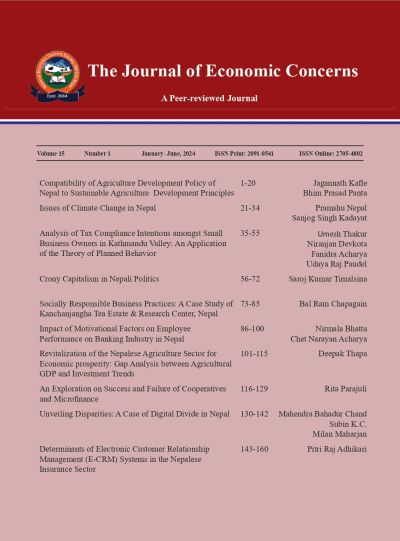Unveiling Disparities: A Case of Digital Divide in Nepal
DOI:
https://doi.org/10.3126/tjec.v15i1.70246Keywords:
Digital Divide, Socio-Economic Status, Logistic RegressionAbstract
This research investigates the digital divide in Nepal, a country witnessing rapid growth in digital adoption. Despite impressive internet penetration rates, disparities persist, rooted in socio-economic factors such as income inequality, gender imbalances, educational disparities, and rural-urban distinctions. Drawing on international literature and employing logistic regression analysis on data from the 2022 National Demographic and Health Survey, the study reveals a significant correlation between socio-economic status (SES) and internet access. Results indicate that individuals with higher SES have a 3.92 times greater likelihood of internet access. Additionally, gender disparities emerge, with females exhibiting higher access probabilities. Urban residents and those with higher education levels also show an increased likelihood of internet access. The findings highlight the persistent digital divide in Nepal and emphasize the need for targeted interventions to promote digital inclusivity. This research contributes to international discussions on digital disparities, offering insights into the multifaceted nature of the digital divide and urging for equitable digital opportunities.




